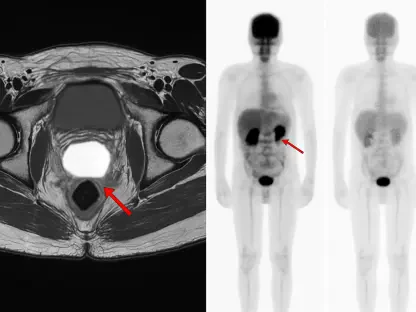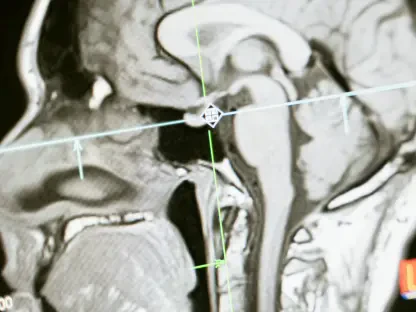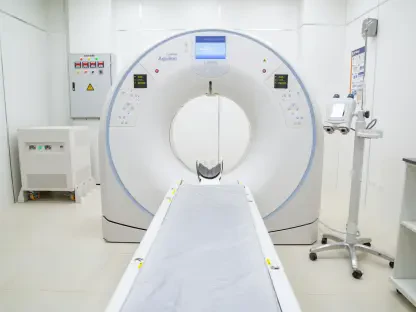A significant labor action has unfolded at Ascension Saint Agnes Hospital in Baltimore, where nurses have decided to strike over unsafe staffing levels and undesirable working conditions. This event highlights deep-seated issues within the healthcare sector, further aggravated by pressures that escalated during the COVID-19 pandemic. The strike serves as a focal point for systemic problems in the nursing profession not just in the United States, but globally. The grievances of the nursing staff at this hospital are part of a larger narrative concerning the state of healthcare environments and labor satisfaction.
Systemic Issues in Healthcare
Unsafe Staffing Levels and Working Conditions
The primary concern driving the nurses to strike is the issue of unsafe staffing levels, a problem that has been growing over many years. Nurses have pointed out that high turnover rates result in precarious staffing conditions that directly affect patient care. Over an 18-month period, this has been a focal point during negotiations between Ascension Health and the National Nurses Organizing Committee/National Nurses United, but with limited progress. The practice of “floating” nurses to areas they are not trained for compounds the risks, diminishing the overall quality of healthcare services provided. Such strategies compromise not only the nurses’ ability to deliver quality care but also their job satisfaction and emotional well-being.
The prolonged period of unfruitful negotiations has seen accusations from the hospital management terming patient care as “suboptimal,” a label that has angered the nursing staff. According to union representatives, this acknowledgment from management itself signals an urgent need for reform. The reported indifference towards necessary improvements has prompted these healthcare professionals to walk off the job for the first time in Baltimore’s history. This marks a significant shift in the usually reserved stance of healthcare personnel regarding labor disputes and underscores the severe strain placed on the nursing workforce.
Broader Impact and Trends
The backdrop for this labor action is the chronic nursing shortage, a pervasive issue that has reached critical levels in recent years. While the pandemic had a catalytic effect, increasing workloads and burnout among nurses, the causes are more deep-rooted. Systemic issues like insufficient support, inadequate pay, and overwhelming workloads have been persistent challenges. Experienced nurses, like Robin Buckner who has four decades in the field, highlight how management’s profit-oriented approach undermines patient care, exacerbating existing problems of staffing and resource allocation.
The strike exemplifies a nationwide trend where concern for financial bottom lines often takes precedence over patient care quality. Hospital executives have increasingly focused on maintaining financial viability, sometimes at the expense of deteriorating working conditions and healthcare standards. Ascension Health’s strategic business decisions, such as expanding into profitable markets and scaling back in underserved communities, reveal the broader struggle between maintaining financial health and providing comprehensive patient care.
Consequences and Ethical Implications
Advocacy for Patient Care
Despite the labor dispute, the striking nurses and their union stress that their actions are motivated primarily by the desire to improve patient care standards. In their view, temporary solutions proposed by management are inadequate for addressing the ongoing issues. The union has drawn attention to the Baltimore hospital’s demographic, which includes a significant number of low-income and Black patients who are disproportionately impacted by substandard care. These communities rely heavily on local healthcare facilities, and the current operating conditions threaten the adequacy and equity of care provided.
The institutionalization of what has been referred to as “suboptimal” care is concerning not only for its immediate impact on patients but also for the long-term ethical implications. Nurses are raising red flags about practices that prioritize cost-cutting over care, warning that such priorities could set troubling precedents in the healthcare system. To them, advocating for their rights is synonymous with advocating for the patients’ rights to receive quality care, underscoring the linkage between working environments and patient outcomes.
Implications for Diverse Communities
Ascension Saint Agnes Hospital services a patient base that is particularly vulnerable to disparities in healthcare access and outcomes. The strike thus draws essential attention to the correlation between management practices and healthcare inequities, challenging institutions to reconsider their priorities. In failing to delegate appropriate resources and support, the capacity of these institutions to uphold high care standards in diverse communities ultimately diminishes. The continued prevalence of such practices risks sustaining a cycle of inequity and diminished access to essential healthcare services.
As the hospital navigates these challenges, the strike has broader implications on the healthcare system’s ethical trajectory and its future strategies for managing labor relations without compromising care quality. Focusing on financial interests may tempt healthcare entities to neglect their ethical responsibilities, posing questions about the sector’s ability to balance profitability with its core mission.
Path to Resolution
Long-Term Consequences for the Healthcare System
The nurses’ strike at Ascension Saint Agnes Hospital reflects a broader dissatisfaction enveloping the healthcare industry, surfacing as a manifestation of systemic flaws. Existing management paradigms, which often struggle to keep pace with practical healthcare demands, clash with the necessities of modern organizational conduct. Should these discrepancies persist, they could further accentuate the nationwide shortage of nurses, resulting in deteriorating service quality and increased stress on healthcare facilities that are already stretched thin.
The unfolding situation at the hospital serves as a microcosm for challenges facing the entire sector, necessitating an overhaul in the relationship between healthcare providers and their employees. Implementing systems that respect and understand the complexities of healthcare work is critical, lest the industry continues on a downward trajectory. Institutions must reassess priorities, promoting strategies that align with the dual objectives of financial stability and excellence in patient care.
Finding Common Ground
A major labor dispute has erupted at Ascension Saint Agnes Hospital in Baltimore, where nurses have commenced a strike due to concerns over inadequate staffing levels and unfavorable working conditions. This dispute underscores long-standing issues within the healthcare sector, issues that have become even more pronounced under the immense pressures of the COVID-19 pandemic. Demonstrating the broader systemic challenges faced by the nursing sector, this strike is pivotal in illustrating the conditions that nurses endure, which not only affect the United States but reflect a global issue. The grievances voiced by nurses at this Baltimore hospital are indicative of a larger, ongoing narrative concerning healthcare environments and labor dissatisfaction. Moreover, they spotlight the dire need for reform and attention within the profession. As nurses advocate for better conditions, their actions serve as a call to address and resolve the pressing challenges within healthcare systems to ensure better work environments, higher job satisfaction, and overall improved patient care.









